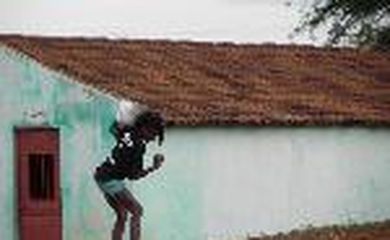Brazil failed to bridge gap between rich and poor between 2000 and 2014


The policies of income transfer and valuation of the minimum wage were not enough to significantly bridge the gap between the rich and poor people.

The social inequality reduction in Brazil remained stable between 2000 and 2014. Despite the income increase among the most vulnerable and extremely poor people, Brazil failed to bridge the gap between rich and poor in 14 years.
The conclusion is from the Municipal Human Development Index (MHDI) Radar, which compares the growing trends in social indicators between 2000 and 2010, and between 2011 and 2014.
Released this week by the United Nations Development Program (UNDP), in partnership with the Institute for Applied Economic Research (IPEA) and the João Pinheiro Foundation, the IDHM points out that the Gini Index, which measures the inequality level, reduced 0.6% from 2000 to 2010, the same reduction reported for the period between 2011 and 2014. The reduction was considered insignificant by the specialists.
Extreme poverty
On the other hand, the survey shows that from 2011 to 2014, per capita household income below R$255 ($76.17) decreased 9.3% per year, while from 2000 to 2010 the annual decrease stood at 3.9%. The reduction was even greater for the income below R$70.00 ($ 20.91), which decreased 14% per year between 2011 and 2014, compared with 6.5% per year between 2000 and 2010.
According to IPEA's coordinator of Urban Territorial Studies Marco Aurélio da Costa, Brazil reached a residual index for extreme poverty, equivalent to the index reported in developed countries.
However, the policies of income transfer and valuation of the minimum wage were not enough to significantly bridge the gap between the rich and poor people. Projections show that inequality in Brazil is so substantial that even when the income of the poor doubles compared with the growth of income of the rich, the impact on inequality is not immediate.
"Inequality remains a challenge for Brazil. We can alleviate poverty, take people out of extreme poverty, but people who earn more will continue to earn more. So, the inequality gap continues in a fairly stable trend," explained Andréa Bolzon, UNDP Human Development Report Coordinator for Brazil.
The report does not elaborate on the causes of changes to social indicators, but for the UNDP, inequality considers not only the income gap, but also territorial, gender and race disparities. "To reduce inequality, we need another set of policies. We have to reduce large fortunes, tax inheritances. These policies could be implemented and discussed by society," said Bolzon.
Tax Adjustments
IPEA and UNDP experts understand that inequality shall not increase due to the current economic crisis, but they warn that policies debated to cut public spending need to be designed expressing concerns about inequality.
"Different studies show that living in an unequal society is bad for everyone. It's bad for those who are in the most vulnerable, but it’s also bad for other people too. A very unequal society creates a state of discomfort. It is a sick society. We understand the need to make tax adjustments, to be responsible with the public accounts, but it is necessary to always look after the most vulnerable and extremely poor people. We cannot only think about solving the accounts problem without thinking of people," she pointed out.
Experts still do not know the extent of the impact of the current economic crisis on other social indicators, but they recognize that the scenario may change. "A set of restrictive policies, fiscal adjustment may generate some impact. These same measures may also provide a favorable economic environment and affect income differently," said Bolzon.
Translated by Amarílis Anchieta
Fonte: Brazil failed to bridge gap between rich and poor between 2000 and 2014



